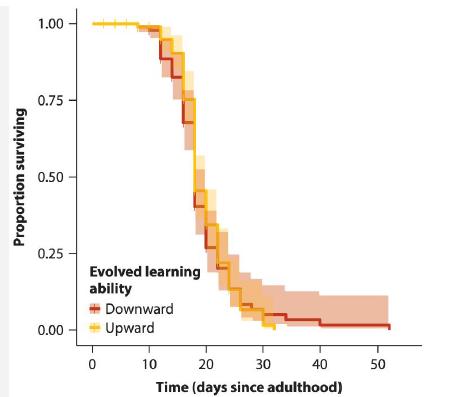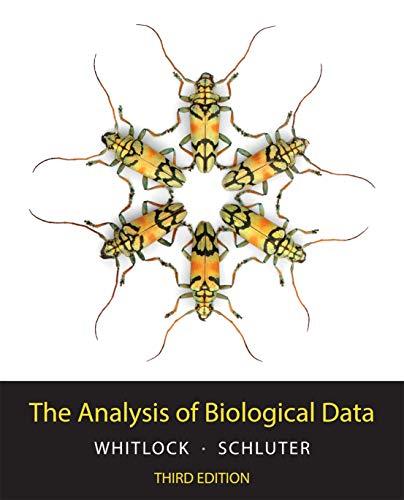The ability to learn is a very useful skill, so it is not clear why more organisms
Question:
The ability to learn is a very useful skill, so it is not clear why more organisms have not evolved better learning abilities. One possibility is that learning is energetically expensive, and the evolution of learning may come with other costs that reduce life span or fecundity. Zwoinska et al. (2016) used experimental evolution to modify learning ability in nematodes and test its effect on life span. Using artificial selection on learning ability over multiple generations, the researchers generated a single line of nematodes that evolved increased (“upward”) learning ability and a line that evolved decreased (“downward”) learning ability. The output from a survival analysis comparing the adult life spans of the upward and downward learning lines is shown below. The data here are based on mated male worms only.


a. Based on the graph, is there likely to be a large difference in life span between male worms between upward- and downward-evolving lines? Explain.
b. Name a method that can be used to calculate the survival curve for each group in the graph at left.
c. Notice the vertical tick marks that appear in some places on the curves at left. What do those likely represent (following the same conventions as in the main text)?
d. At what time point have roughly half of the downward-evolved worms died? Estimate by eye.
e. Computer optional: Download the nematode data from the book website. Use a computer program to estimate the hazard ratio of upward- learning nematodes relative to downward- learning nematodes. Include a 95% confidence interval for the hazard ratio.
Step by Step Answer:

The Analysis Of Biological Data
ISBN: 9781319226237
3rd Edition
Authors: Michael C. Whitlock, Dolph Schluter





